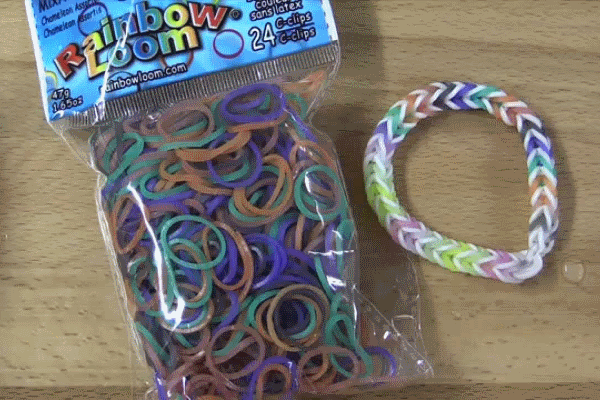
A lawsuit filed against Wish.com claims the online retailer steals product ideas and sells counterfeit versions without entering into official licensing agreements with the product creators.
The suit – reported by the topclassactions.com website – has been brought by Choon’s Design, a US company which makes a patented and award-winning educational toy for children that allows them to weave designs using rubber bands.

Choon’s Design claims the online retailer is selling knock-off versions of its product range that infringe on its trademarks, saying it “advertises purported Rainbow Loom products for sale on Wish.com and claims that they are ‘Verified by Wish’.”
Wish.com has built a reputation offering goods at cut price rates, but according to the class action it is able to do so because the items – generally made in China or other Asian countries including Myanmar and Indonesia – are not genuine.
Last year, Wish.com reportedly saw revenues generated from its platform double to $1.9bn, with the company taking a 15 per cent cut of each sale on its platform.
The company’s intellectual property and brand protection policy statement stresses that all the products on its websites are sold by third-party sellers – ‘merchants’ in its vernacular – and it “is not actively involved in the listing, sale or delivery of items offered.”
That’s a position often taken by online marketplaces that until recently has seen them sidestep liability lawsuits involving counterfeit or pirated goods. There are however some signs that it might not be an effective protection for much longer.
In July, a federal appeals court in Philadelphia reversed a lower court ruling that Amazon cannot be held liable as a seller of products from third-party vendors in a case involving a woman who was blinded by a counterfeit retractable dog leash.
Later that month a Wisconsin district court said Amazon should be considered the seller in a case lawsuit a bathtub faucet adapter that malfunctioned and caused flooding to a home.
In August, an Illinois judge ruled that Amazon must face claims of misrepresentation and consumer fraud related to the sale of a defective hoverboard whose battery caught fire and destroyed a family home, and a New Jersey court found that the company should be held liable in another defective hoverboard-related suit.
There’s still a lot of legal wrangling to come, but the recent judgments suggests the third-party seller argument may not be the defence it once was.
Wish.com insists it has “a zero-tolerance policy against the listing or sale of products that violates a third-party’s copyright, trademark, or other rights.” It has a reporting form for IP violations, but it’s not clear how quickly it responds to takedown requests.
©
SecuringIndustry.com






